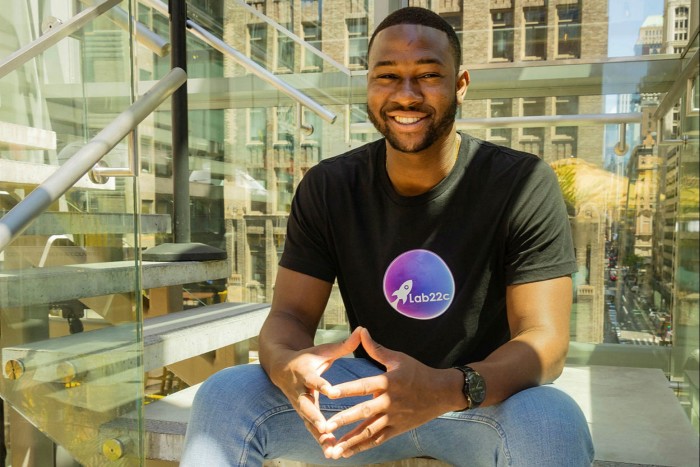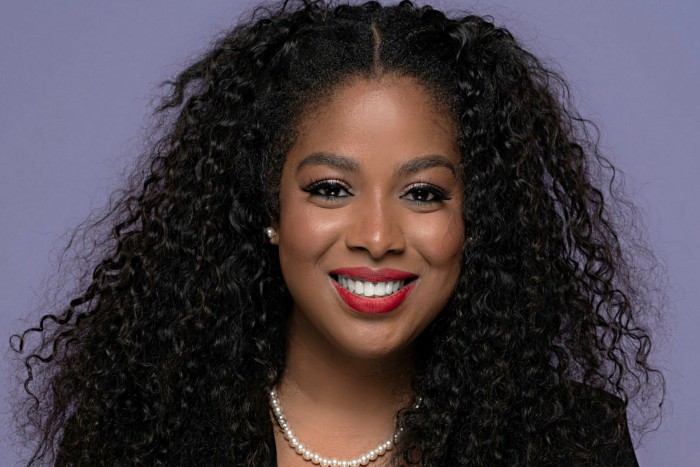Cryptocurrency is resonating a lot among black American investors

The widespread losses caused by the cryptocurrency crash are even wider among black investors.
A quarter of black Americans own cryptocurrencies, compared to just 15 percent of white investors, according to a survey by Ariel Investments and Charles Schwab. Black Americans have been more than twice as likely to buy cryptocurrency as their first investment.
The value of these investments has imploded. The total market value of cryptocurrencies has fallen below $ 1 billion from more than $ 3.2 billion last year. The fall in digital assets comes with a bear market in US stocks.
Black Americans’ higher exposure to cryptocurrencies has made them more vulnerable to the economic downturn, even though on average their households have less wealth.
The attraction of building wealth, enhanced by marketing, drew many black investors into cryptocurrencies. The dollar price of bitcoin rose by 9,300 percent during the five years to the top in November.
Jefferson Noel, 27, said he got his first exposure to crypto in January 2019 when he accidentally invested $ 5 in bitcoin while using the Cash App, a payment service.

“I had no idea what it was, and I do not even remember doing it,” he said.
In May last year, his unintentional investment was worth $ 70. The astronomical gain inspired him to take a friend’s advice to plow $ 20,000 of his savings into other cryptocurrencies, such as dogecoin, over more traditional investments such as index funds.
“[Black Americans] do not want to be left behind, said Noel. “As far as I can see, the black community sees crypto as a way to level the playing field and get into the game before the gatekeepers prevent others from participating.”
But he is now reconsidering that decision. Persistent losses have removed more than 20 percent from his crypto investment. He researches mutual funds on the advice of his uncle, but still buys more crypto.
Historically, black investors have tended to be conservative, investing more of their money in low-risk assets such as insurance and savings bonds. Black Americans have less confidence in the stock market and financial institutions than white Americans, according to the Ariel-Schwab survey. Further research has linked their fears to decades of discrimination in the financial system.

Jatali Bellanton, author of a curriculum for personal finance aimed at young black Americans called Kids Who Bank, sees cryptocurrencies as a way to make up for wealth-building opportunities that were historically unavailable in housing and stock markets.
“We do not like to be left behind when it comes to new technology,” she said.
The promise of cryptocurrencies as a wealth builder has been overloaded with celebrity recommendation, sponsorship and advertising.
Prominent black Americans including musicians Jay-Z and Snoop Dogg, boxer Floyd Mayweather, actor Jamie Foxx and filmmaker Spike Lee have promoted crypto to their communities.
Lee appeared in commercials for crypto-ATM operator Coin Cloud last year, saying that “old money is not going to pick us up; it pushes us down “and” systematically suppresses “, while digital assets are” positive, inclusive “.
Last month, Jay-Z announced a partnership with former Twitter boss Jack Dorsey to launch a “Bitcoin Academy” literacy program in the public housing complex in Brooklyn where he grew up.
Such celebrity supporters have faced strong criticism for being paid to sell high-risk investments to people who may not have the resources to handle the volatility of crypto.
“Ninety-eight percent of these cryptocurrencies were not designed to do anything other than withdraw money from people’s bank accounts,” said Najah Roberts, a former financial adviser and founder of the Crypto Blockchain Plug cryptocurrency education center.
“This is not ‘get rich quick,'” Roberts added. “There are massive targeting ads targeted at our community.”
Bellanton said it is not advertising but the prospect of financial freedom, the lack of investment minimums common to mutual funds, and a sense that the distributed blockchain book is more transparent than large banks attracting first-time investors.
“The reason that minorities at a higher rate than others use crypto is precisely because if you are not already rich, it is much cheaper to send [USD Coin, a stablecoin asset] than sending a lead, “said Brian Brooks, CEO of blockchain company Bitfury, at the Aspen Ideas Festival last month.” It’s just cheaper. The whole system is cheaper and faster. It does not have all these barriers to entry where you can only get it if you are already rich. ”
Despite the risk of loss, many black investors remain invested in the market. Dennis McKinley, 41, has bought a dip against the advice of his financial adviser. He said his cryptocurrencies now make up about 30 percent of his total portfolio, held together by stocks.
“Young black America has just reached a point where we have the freedom to invest in alternative strategies in addition to just real estate,” said McKinley, a small business owner in Atlanta. “I think it’s important to learn and get out there.”

























